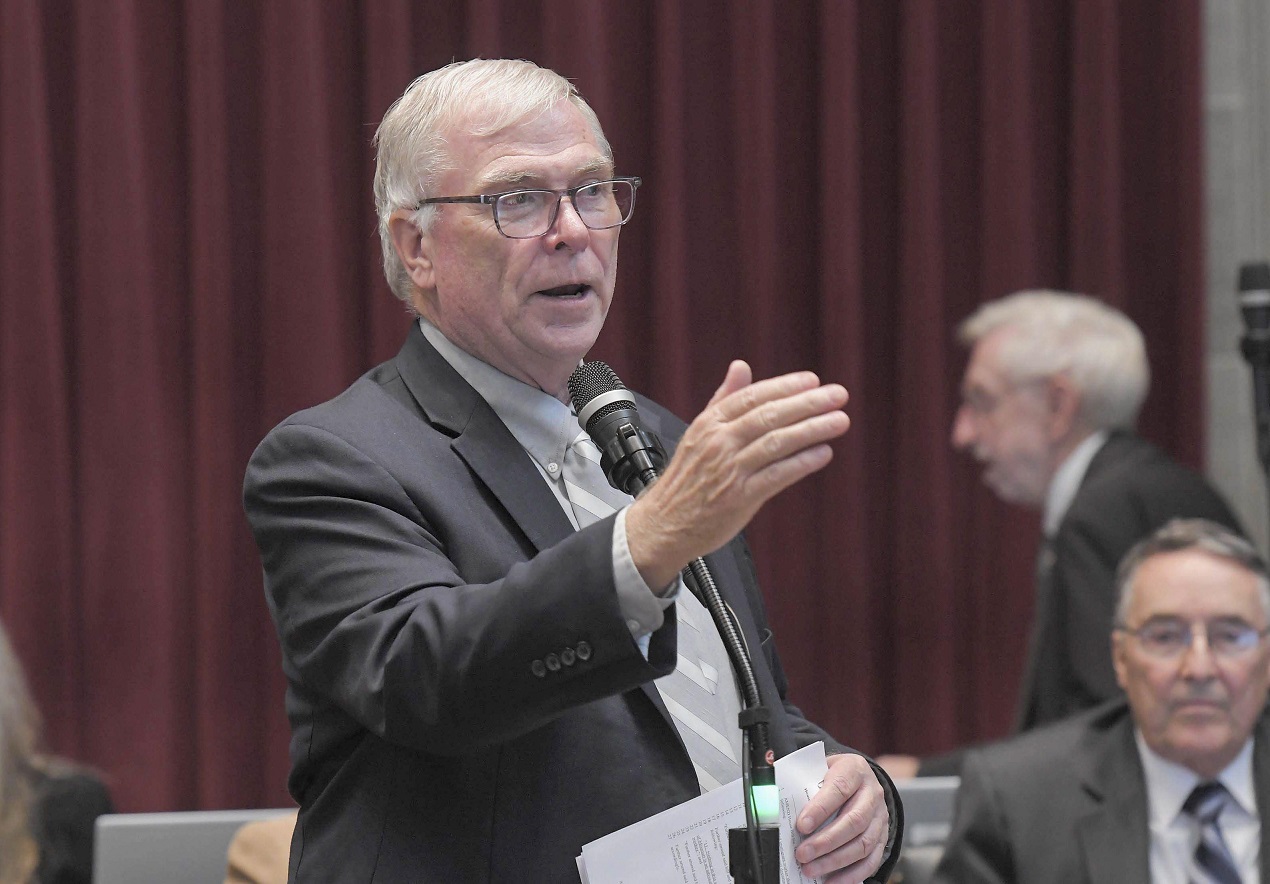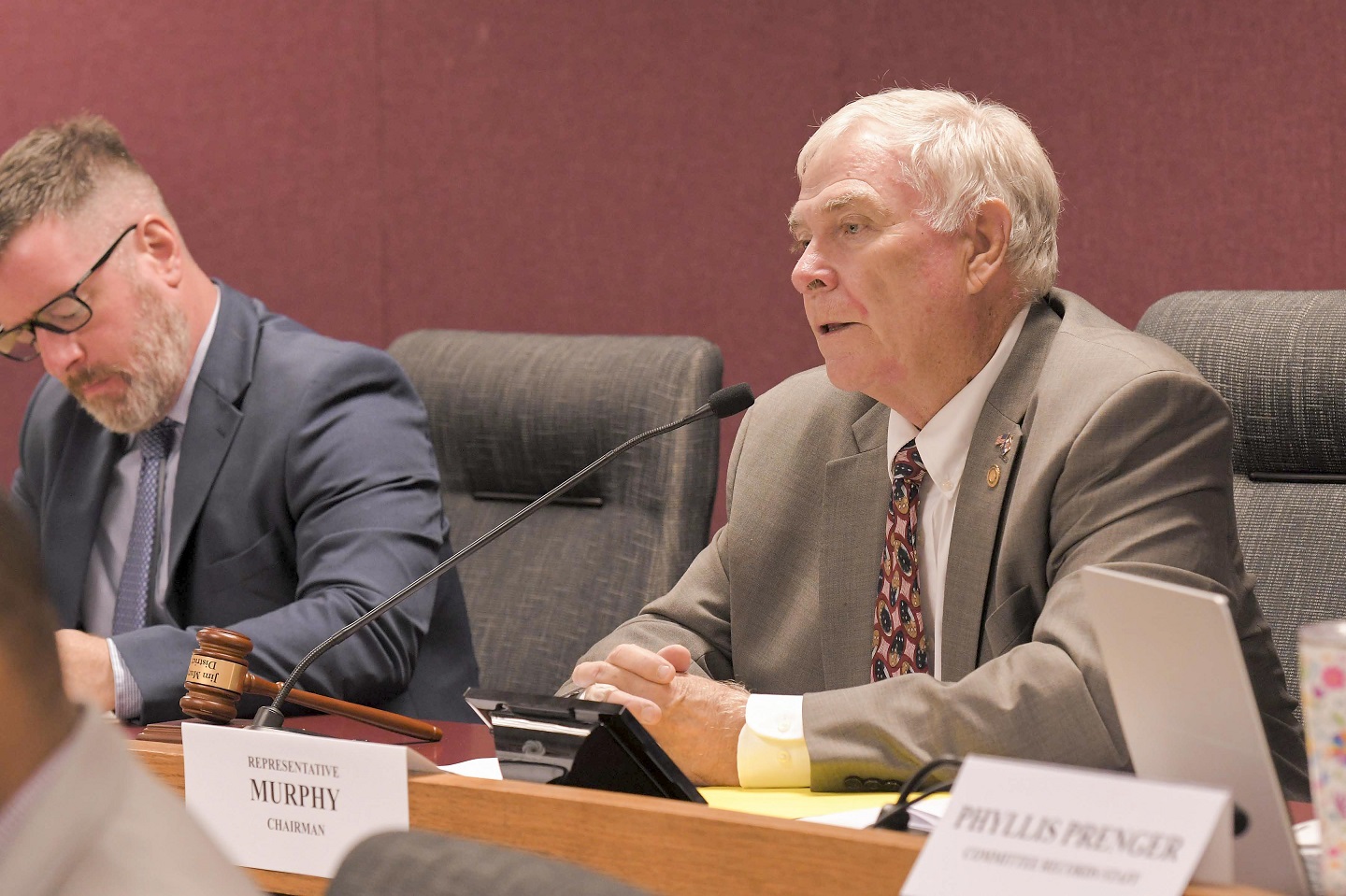Updated 08/13/2025: This past weekend, a child was safely placed in the Safe Haven Baby Box at Mehlville Fire Protection District Station 2. This is the second time a child has been placed in the state’s first Baby Box, and the second time a Baby Box in Missouri has been utilized. The child received immediate care and is doing well.
Missouri House legislation aimed at saving the lives of babies has been fully implemented, it has worked, and now the House has acted to expand it to reach more communities across the state.
For mothers in need of help, the Safe Haven Crisis Line is (866) 99BABY1, or visit shbb.org
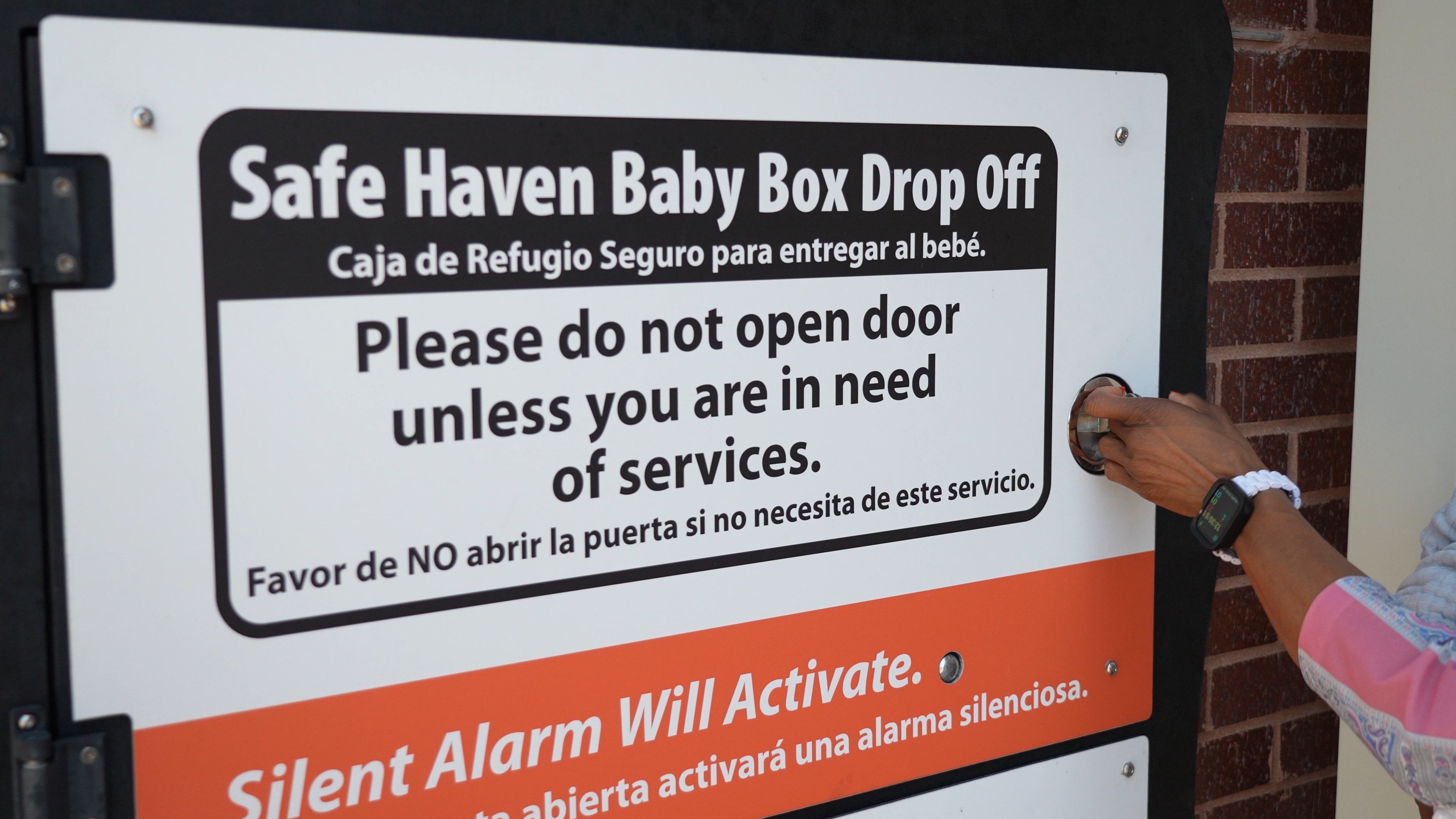
In 2021, the legislature passed, and the governor signed, a bill allowing for the installation of Safe Haven Baby Boxes— secure, climate-controlled incubators where newborns can be safely and anonymously surrendered without legal consequences for parents. The boxes offer a compassionate option for mothers in crisis who are unable to care for their newborns.
The first such box was installed at Mehlville in August of 2023. Just six months later, it was used for the first time: a newborn girl, believed to be only hours old, was placed in the box. She was quickly cared for, adopted, and is now healthy and safe. Then, on the afternoon of August 10, a child was again placed in that box. This was the second time a Baby Box in Missouri has been used. That child received immediate care and is doing well.
“We’ve had to use the Box already — and everything worked out perfectly. Everything worked the way it was supposed to. The legislation worked and the final product worked, and we’re just excited that through those efforts it’s going to expand it all across the state,” said Mehlville Fire Chief Brian Hendricks, who has become a figurehead for Baby Boxes in Missouri.
The idea to bring the Boxes to Missouri was brought to Representative Jim Murphy (R-St. Louis) by a constituent who had read about their use in other states. Murphy sponsored the language that became part of House Bill 432 in 2021, allowing Boxes to be used in Missouri and for babies up to 45 days old to be surrendered anonymously.
Murphy is proud to see that legislation become reality. In carrying it, he has consistently said that women in a crisis such as this should not be judged but praised.
“A woman that goes through the process of deciding that [her] life is in such a situation that [she] can’t give this baby a future, she has made an incredible decision,” Murphy said. “She has made a decision that this baby is more important than her feelings, and we needed to make that as easy for her and as seamless for her, as anonymously as possible.”
One of the Boxes’ biggest proponents in the House is Representative Raychel Proudie (D-Ferguson), a member of the House Appropriations Committee who led the effort to secure that funding in the budget.
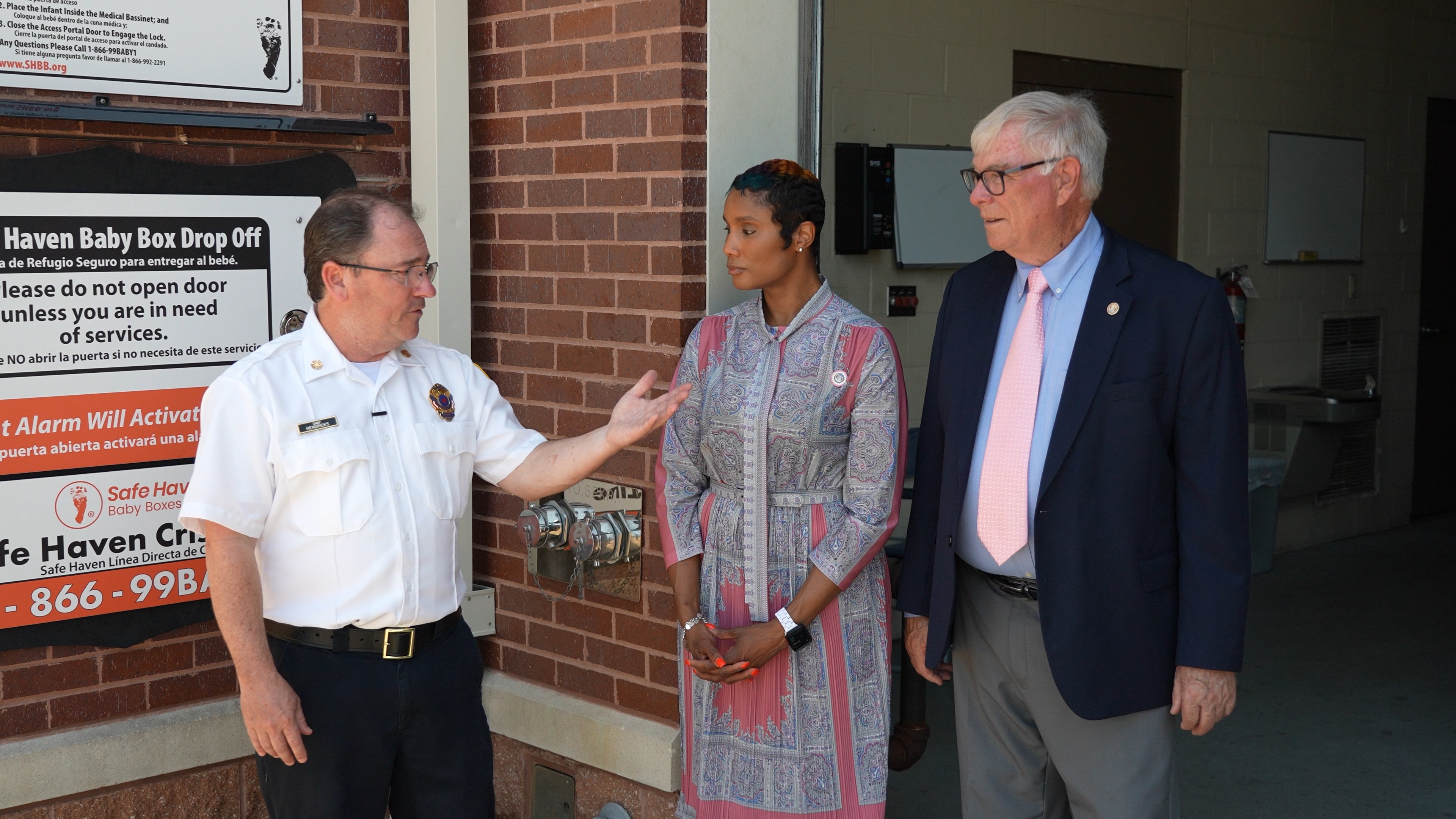
So far, seven Safe Haven Baby Boxes have been installed in Missouri and more are on the way, including a second in Mehlville soon to come online. This year, the legislature set aside in the current state budget $250,000 for a cost-share program to help entities cover the cost of installation, enough to contribute to 25 more Boxes.
She said while many people may not be able to understand how a person could make the decision to give up a baby in this way, it is a reality, and one that often plays out with tragic results. The use of Baby Boxes prevents many such tragedies.
“I think we all look forward to a time where we can stop hearing about babies being found in dumpsters, or in bathrooms, or in trash cans, or under trees, or buried. We are in the business of not only saving lives but improving the quality of life for the citizens of Missouri,” said Proudie. “A lot of people may not be able to fathom it but for individuals who do first responders’ work, they’ve seen some of everything that the average person has not experienced, have not seen, and will never see, and so when they tell us that they need some assistance in this way and it makes sense, we’re more than happy to oblige.”
Hendricks said every part of the state should have one of these, because this kind of crisis could happen anywhere. As an official who has already gone through the process of having one installed, he offers his help to leaders in other communities.
“Just let me give you the answers to the test. I’ve tripped, I’ve fallen, I got back up. I’ve dealt with the state. I’ve dealt with the legislature. I’ve dealt with it. You can just take all this information and copy it and do it at your place,” Hendricks said. “I think you’re going to see this program explode across the state of Missouri because of the actions of the legislature, of the legislators.”
For those who want to learn how to get a baby box in their area, Chief Hendricks invites them to contact him at the Mehlville Fire Protection District.
Proudie and Murphy recently visited Mehlville Fire Protection District House 2, the site of the first Baby Box in Missouri and where the little girl was dropped off last year. They participated in a test of the box and got to see firsthand the response to its use. They saw responders at the fire station react and saw the various alerts and alarms that go out when the Box’s door is shut.
The Station’s personnel are trained in all manners of neonatal care, so they can ensure the health of a baby in any situation.
“It’s a commitment, but it’s worth every minute,” Hendricks said.
The whole system is impressively and carefully designed to monitor the health and safety of the baby, protect the anonymity of the person who puts the baby in the box, and provide that person with information on how they can seek help, and who to contact if they change their mind and want to be involved in that baby’s life.
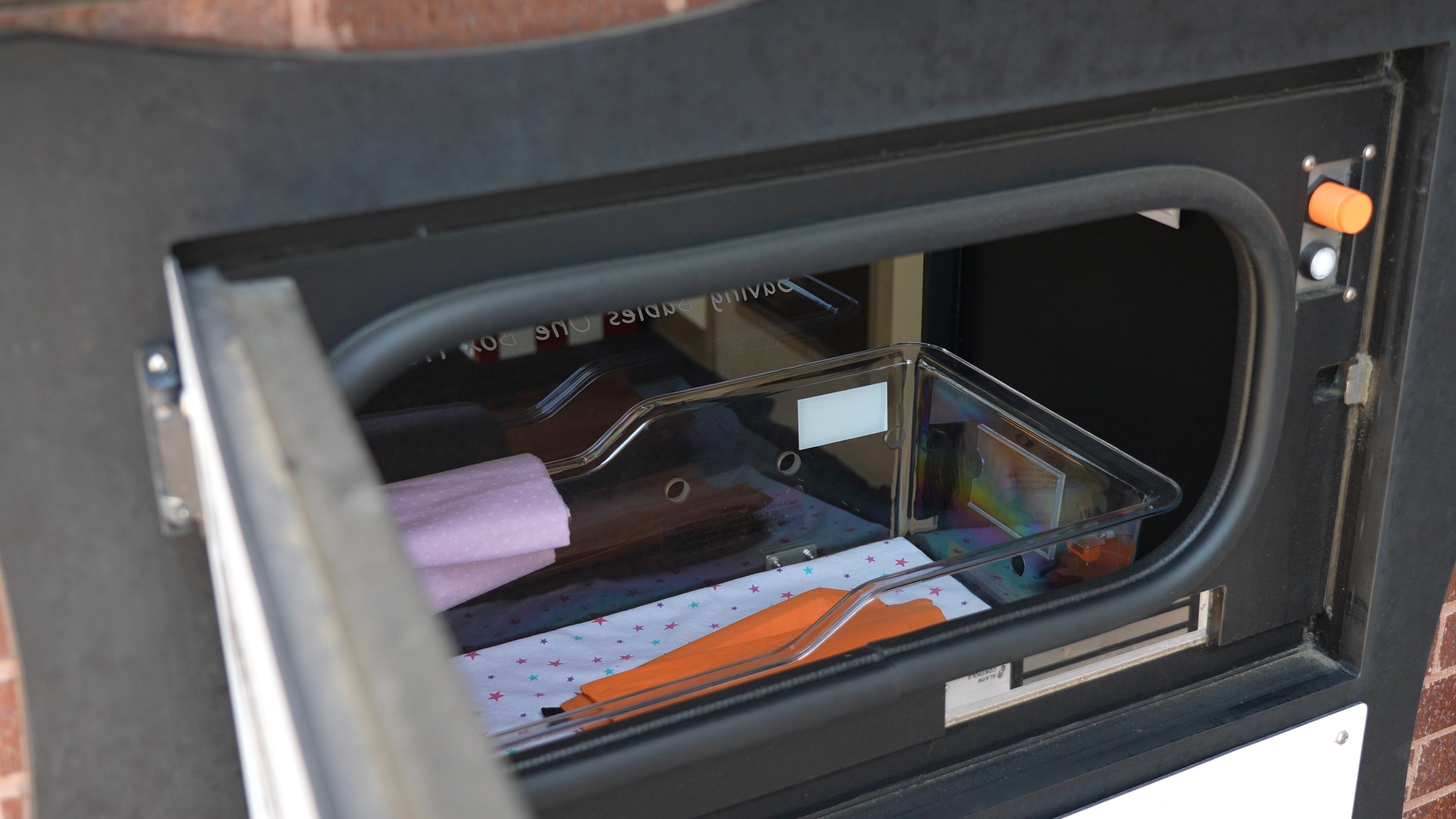
Murphy remains impressed by the system every time he sees it, and he says that thoroughness is necessary.
Hendricks said the night that the Box was used remains one of his proudest moments in 13 years of being a Fire Chief. When he called Murphy to let him know what had happened, Murphy broke into tears.
“I hope it’ll never get used again, but if it does it needs to be here.”
Previous stories:
House legislation enables safe place to surrender newborns in Missouri
VIDEO: ‘Baby Box,’ created by House efforts, used for first time to safely surrender a newborn
